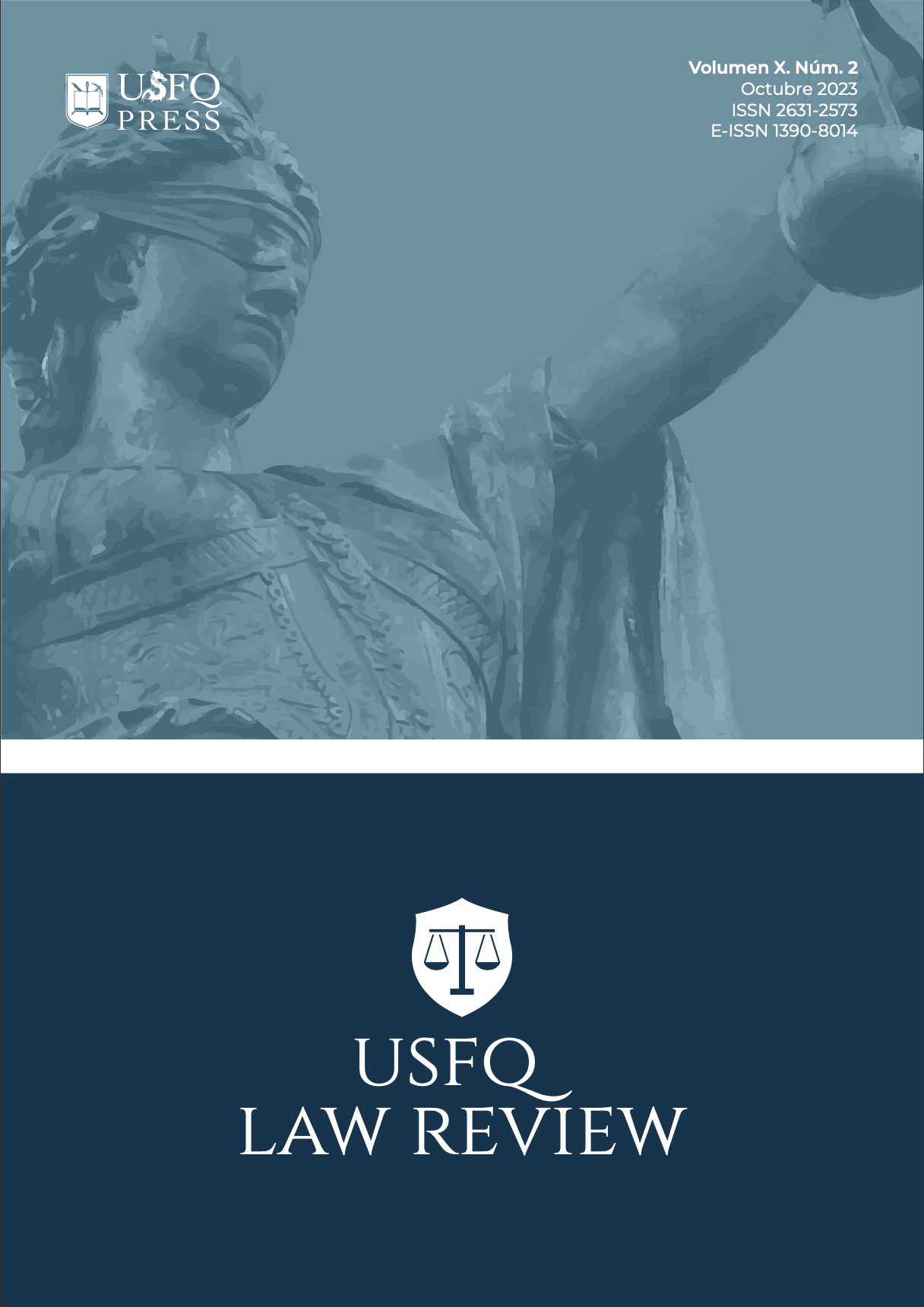On the nature of the indivisibility of an obligation: Is it truly possible to divide a performance?
DOI:
https://doi.org/10.18272/ulr.v10i2.3033Keywords:
obligation, indivisible obligation, legal indivisibility, impossibility to divide performance, regime of obligationsAbstract
Ambitious. Adventurous. Perhaps even controversial. This article aims to revive a discussion that, in the author’s view, is not entirely resolved. This viewpoint is based on the premise that the analysis of the indivisibility of an obligation refers to the thing itself, not the performance. To achieve this, it is necessary to examine the historical origin of this concept. Within this context, and considering the current Ecuadorian legal framework, it is worth questioning whether it is possible to divide the performance, the object of an obligation. This article supports the thesis that the object of an obligation is, by nature, indivisible, notwithstanding the fact that the same obligation may encompass multiple distinct performances related to the same thing. Far from being a purely theoretical discussion, adopting this stance carries significant practical consequences. Among them, even the existence of certain types of obligations would be questionable.
Downloads
References
Abeliuk, René. Las obligaciones. Santiago de Chile: Editorial Jurídica de Chile, 1993.
Albadalejo, Manuel. Derecho civil II: Derecho de obligaciones. Madrid: Edisofer, 2011.
Alessandri, Arturo, Manuel Somarriva, y Antonio Vodanovic. Tratado de derecho civil: Partes preliminar y general. Santiago de Chile: Editorial Jurídica de Chile, 1999.
Bejarano, Mauricio. Obligaciones civiles. Ciudad de México: Oxford Harla, 1997.
Bercovitz, Rodrigo. “Las obligaciones divisibles e indivisibles”. Anuario de Derecho Civil 26, n.o 2. (1973): 507-84.
Clemente de Diego, Felipe. Instituciones de derecho civil español. Madrid: Pueyo, 1959.
Código Civil ecuatoriano [CC]. R. O. Suplemento 24 de junio de 2005 reformado por última vez R. O. 15, Edición Constitucional de 14 de marzo de 2022.
Sentencia n.o 584-2010, Corte Nacional de Justicia, Sala de lo Civil, Mercantil y Familia, 4 de abril de 2013.
Sentencia n.o 331, Corte Suprema de Justicia, Segunda Sala de lo Civil y Mercantil, 27 de mayo de 1997.
Hernández-Gil, Antonio. Derecho de obligaciones. Madrid: De Rivadeneyra, 1976.
Meza Barros, Ramón. Manual de derecho civil: De las obligaciones. Santiago de Chile: Editorial Jurídica de Chile, 2007.
Ospina, Guillermo. Régimen general de las obligaciones. Bogotá: Temis, 2008.
Osterling, Felipe, y Mario Castillo. “Sobre la clasificación de las obligaciones”, Advocatus 26 (2011): 322.
Parraguez, Luis. Manual de derecho civil ecuatoriano: Teoría general de las obligaciones. Loja: UTPL, 2006.
Parraguez, Luis. Régimen jurídico de los bienes. Quito: Ediciones Iuris Dictio, 2015.
Ramos, René. De las obligaciones. Santiago de Chile: Editorial Jurídica de Chile, 1999.
Valencia Zea, Arturo. Derecho civil: De las obligaciones. Bogotá: Temis, 2015.
Downloads
Published
How to Cite
Issue
Section
License
Copyright (c) 2023 Álvaro Martínez Almeida

This work is licensed under a Creative Commons Attribution-NonCommercial-ShareAlike 4.0 International License.
In relation to copy rights, authors publishing with USFQ Law Review know and accept its internal policies, including but not limited to:
1. Open Access Policy.
2. Authorship Policy.
3. Copyright Policy.
4. Pre-Publication Policy.
5. Post-Publication Policy.
6. Intellectual Property Protection Policy.
7. Digital Preservation Policy.



